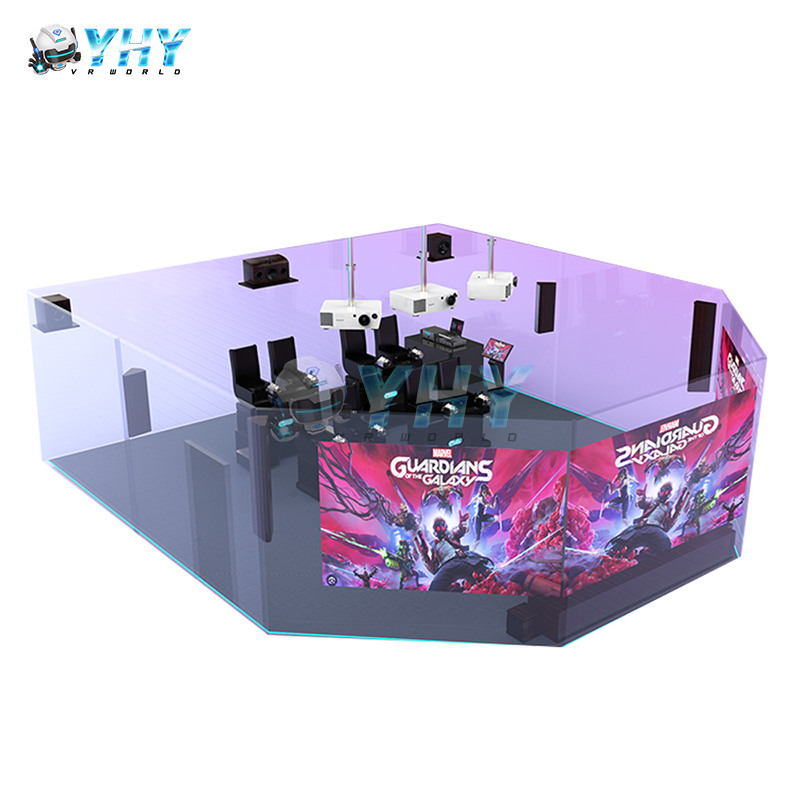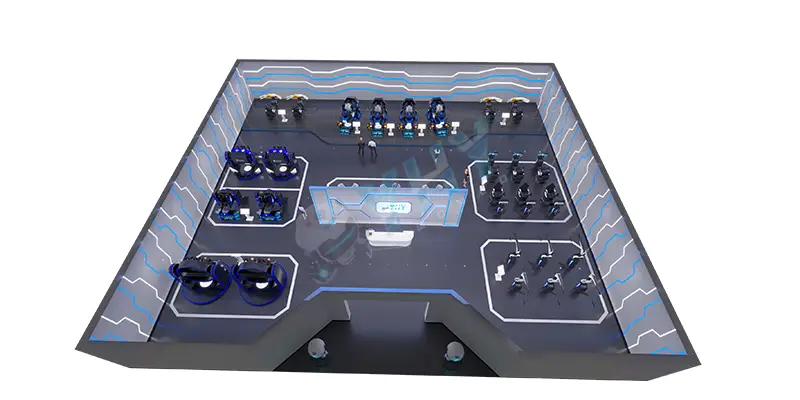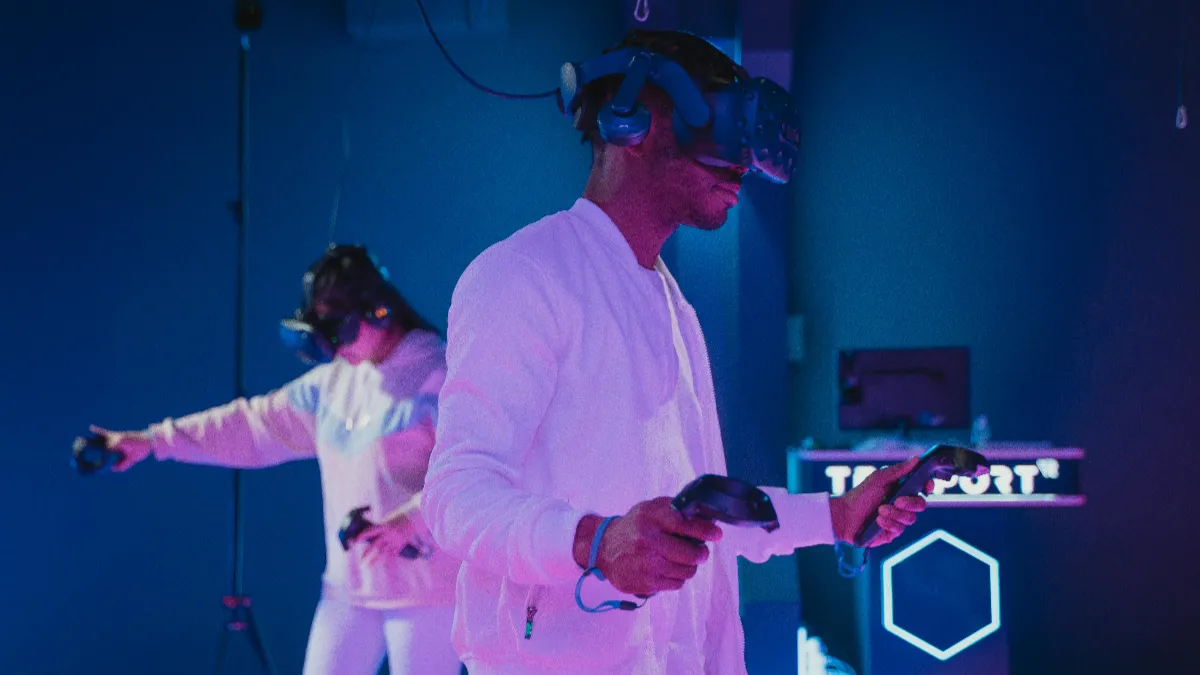VR 게임 산업은 더 이상 미래 지향적인 아이디어가 아니라 급성장하는 비즈니스 기회입니다.. From motion simulators in shopping malls to full-scale VR arenas, immersive entertainment is attracting millions of players every month. Entrepreneurs, 투자자, and amusement center owners are all asking the same question:
Is it better to start an independent VR arcade or join a VR franchise?
This article explores both options in detail. You’ll learn about profitability, operational control, investment costs, and the practical pros and cons of each model. By the end, you’ll have a clear sense of which path suits your goals—and how a reliable manufacturer like YHY VR can help you bring your vision to life.
Is VR Gaming Business Profitable?

In short—yes. The VR gaming business has become one of the fastest-growing segments in the entertainment market. According to Fortune Business Insights, the Global VR in Gaming Market size is projected to grow from USD 22.63 billion in 2024 to USD 189.17 billion by 2032.
Customers love immersive experiences that can’t be replicated at home. Motion platforms, 슈팅 시뮬레이터, and 9D VR cinema pods keep drawing crowds to malls and entertainment centers.
But while demand is clear, newcomers face an important decision—how to enter the market. Should you join an established franchise or build your own brand from scratch? Let’s explore both options.
What Is a VR Arcade Franchise?
A VR arcade franchise is a business model where an existing brand licenses its concept, 브랜딩, and operating system to other entrepreneurs. You usually pay an initial franchise fee (which can range from $30,000 에게 $100,000, depending on the brand) and a monthly royalty, often around 5–10% of revenue.
In return, you receive:
- Business setup guidelines
- Store design and decoration plans
- Staff training
- Marketing materials
- Technical and operational support
본질적으로, you’re essentially joining a ready-made business through franchising. Franchisors often assist in finding a location and even supply VR equipment directly or through partners. This structure helps you start faster, but limits your freedom to innovate.
Pros and Cons of Running a VR Franchise
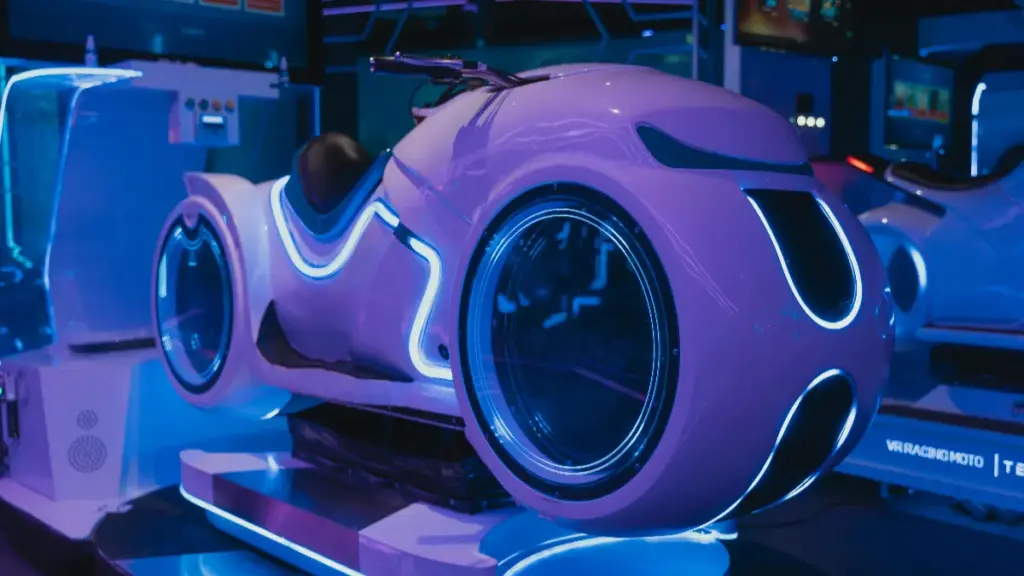
Running a franchise is like joining a winning team—you benefit from an existing brand, but you play by their rules.
장점:
- Brand trust: Customers are familiar with the franchise, helping you attract visitors quickly.
- Operational guidance: Training and manuals make setup smoother.
- Marketing power: National or global campaigns raise visibility.
- Easier financing: Banks tend to favor proven business models.
단점:
- Limited flexibility: You must follow franchise policies for pricing, layout, and promotions.
- Ongoing fees: Royalties and marketing contributions reduce net profit.
- Higher entry cost: Total investment often exceeds $150,000–$300,000.
- Uniform branding: Your arcade looks like every other location. That can make it hard to stand out in a competitive city.
What Is an Independent VR Business?
An independent VR business means you start your own brand, design your own space, and choose your equipment freely. You decide your pricing, game lineup, and marketing strategy. Some investors start small—with two or three simulators—while others open large-scale VR parks with 10 or more zones.
It’s a flexible and creative path that gives you full ownership, but also full responsibility.
Pros and Cons of Starting an Independent VR Business
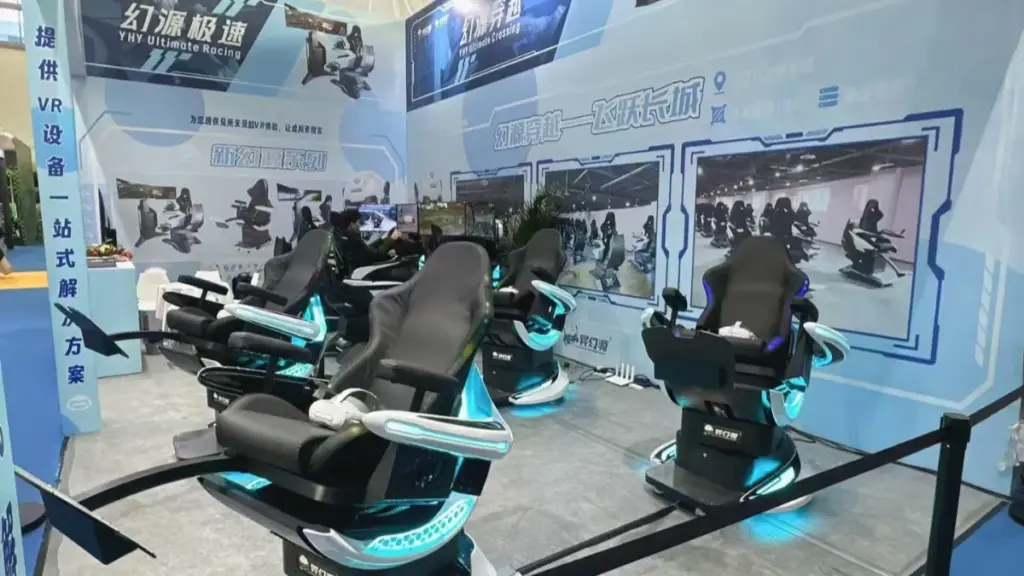
Operating independently offers greater rewards but also greater challenges.
장점:
- Full control: You manage everything—from location and theme to branding and customer experience.
- Higher profit margins: With no royalties, profits can reach 30–45%, compared to 15–25% for franchises.
- Flexible sourcing: You can select the most cost-effective VR 아케이드 머신 from various manufacturers.
- Custom promotions: You can design local campaigns tailored to your market.
단점:
- No built-in reputation: You must build brand awareness from the ground up.
- Steeper learning curve: There’s no ready-made business model or training manual.
- No pre-set marketing plan: All promotional efforts are your own responsibility.
- Risk of inexperience: Without industry knowledge, finding the right VR equipment and layout can take time. Learn more in our guide: VR 아케이드 기계 사업을 시작하는 방법?
Key Differences Between a VR Franchise and an Independent VR Business
Here is a summarized table for your reference:
| 측면 | VR Franchise | Independent VR Business |
| Startup Cost | $150,000–$300,000 | $60,000–$200,000 |
| Brand Ownership | Belongs to franchisor | Fully owned by you |
| Operational Control | Limited by franchise rules | Complete freedom |
| Profit Margins | 15–25% after fees | 30–45% depending on setup |
| 지원하다 & 훈련 | Provided by franchisor | From manufacturer or self-managed |
| Flexibility | 낮은 | 높은 |
| Risk Level | Lower initially | 더 높은, but scalable long term |
Which Option Is More Profitable in 2026?
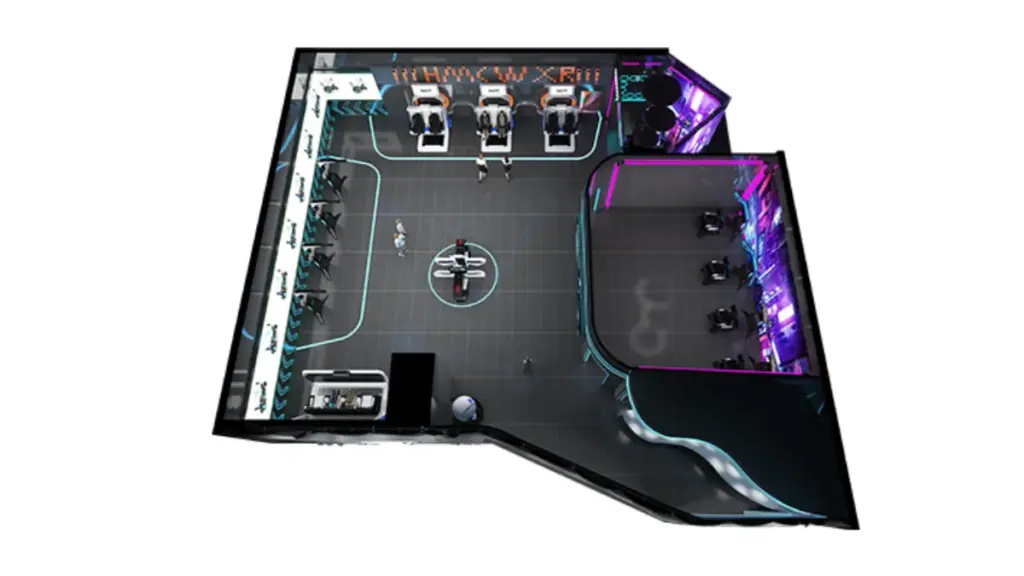
~ 안에 2026, independent VR arcades generally offer higher profit potential than franchises. As we mentioned above, without ongoing royalties, independent VR arcade owners can retain 30–45% of revenue, compared to 15–25% in typical franchise setups. Direct sourcing from manufacturers allows flexible equipment choices and lower costs. Independent operators can adjust pricing, 프로모션, and layouts to match local demand, maximizing revenue. Franchises provide a ready-made system, brand recognition, and operational guidance, which reduces early-stage risk but limits profit margins.
Typical payback periods:
- Independent VR arcades: 8–14 months
- Franchise arcades: 18–24 months
How to Decide: Independent VR Business or Franchising?
Here are three questions that can help you choose wisely:
Do you want full creative control?
Go independent. You’ll be free to experiment with themes, 가격, and promotions.
How much guidance do you need?
If you’re new to entertainment operations, a franchise gives you a roadmap and training system.
What’s your long-term goal?
If you dream of creating your own brand and scaling across cities, independence is the better route.
If you want a stable, low-risk operation with a recognized name, a franchise can deliver that.
Some investors even start as independents, learn the ropes, then develop their own mini-franchise network. This evolution is becoming increasingly common as the market matures.
맨 위 5 VR Arcade Manufacturers in China
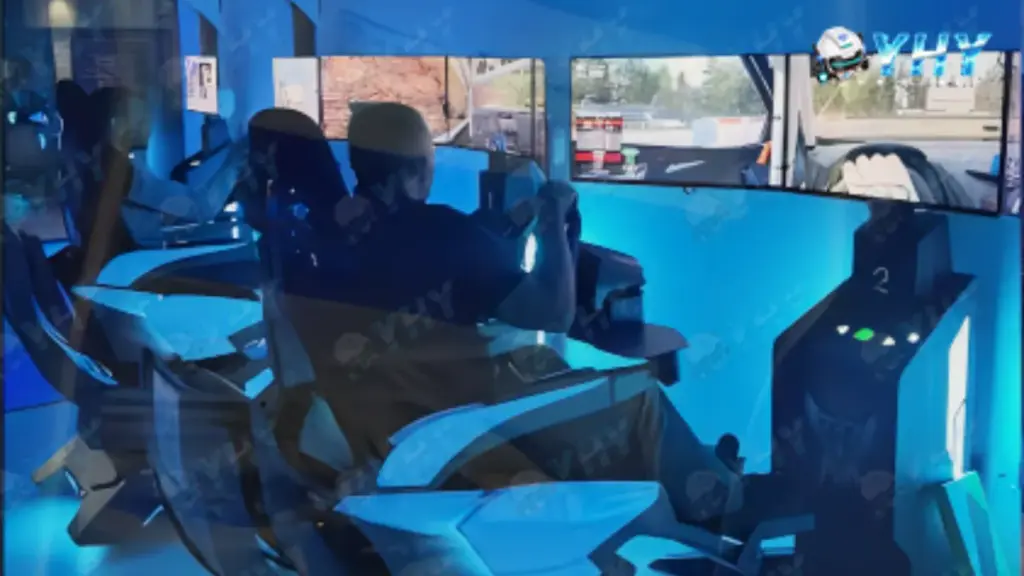
If you decide to build your own brand, partnering with the right manufacturer is critical. Good suppliers don’t just sell machines—they offer setup support, 콘텐츠 업데이트, and after-sales maintenance. Here are five of China’s most trusted VR arcade manufacturers:
- YHY VR – The leading 360° rotational VR simulator manufacturer, covering about 95% of this segment. Offers complete arcade solutions including VR racing, VR Crossing, and VR Flight.
- Movie Power – Specializes in compact 9D pods and educational VR systems for shopping centers.
- FuninVR – Known for high-quality motion-platform simulators and multiplayer experiences.
- Longcheng VR – Offers customizable designs and solid after-sales service.
- Skyfun VR – Focused on space-saving setups and cost-efficient startup packages.
Start Your VR Business with YHY VR: One-Stop Equipment and Support
Starting a VR business may sound complex—but with the right partner, it’s straightforward. YHY VR provides everything you need to set up a professional, profitable arcade:
- Comprehensive equipment range: From the popular VR 360 King Kong to VR 1080° Iron Warrior simulators.
- Turnkey solutions: Layout planning, installation guidance, and content updates.
- Business consulting: ROI analysis and marketing tips tailored to your target audience.
이상으로 8 years of experience and clients in 100+ 국가, we help entrepreneurs and amusement centers turn ideas into working entertainment spaces. Take the next step today—contact YHY VR to get your full independent VR business solution and start turning your vision into reality.

